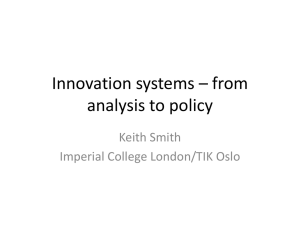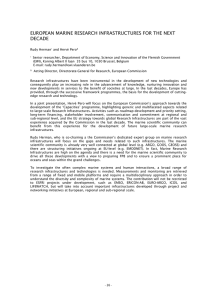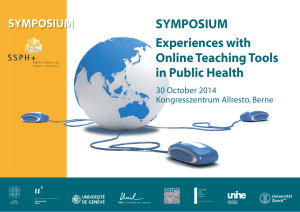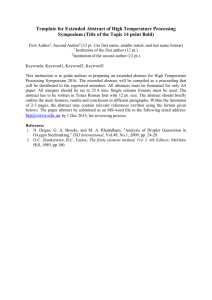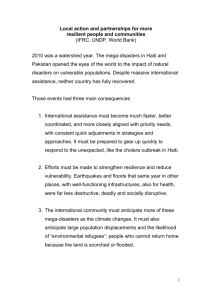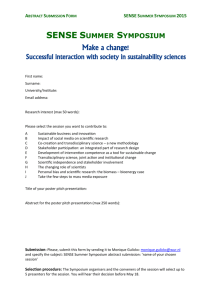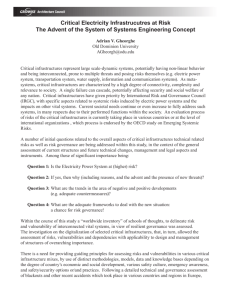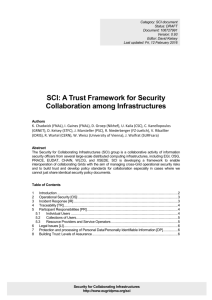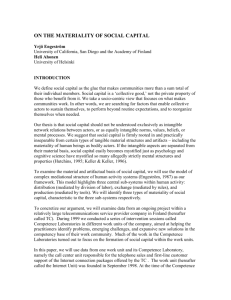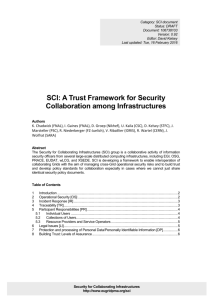here - Canada Foundation for Innovation
advertisement
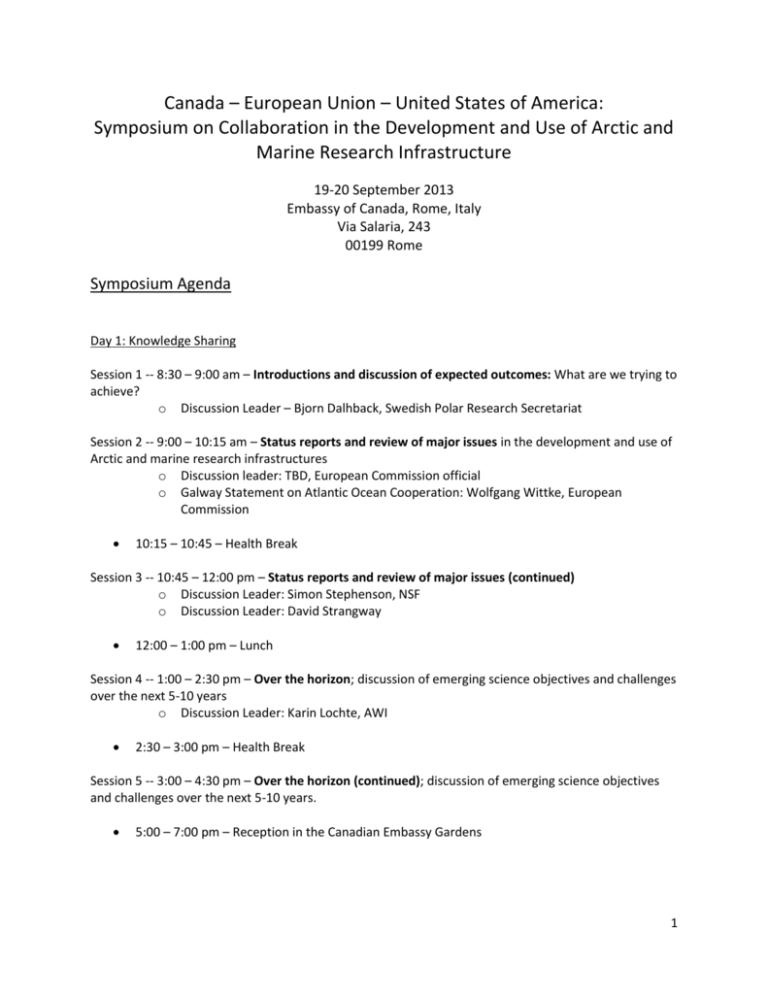
Canada – European Union – United States of America: Symposium on Collaboration in the Development and Use of Arctic and Marine Research Infrastructure 19-20 September 2013 Embassy of Canada, Rome, Italy Via Salaria, 243 00199 Rome Symposium Agenda Day 1: Knowledge Sharing Session 1 -- 8:30 – 9:00 am – Introductions and discussion of expected outcomes: What are we trying to achieve? o Discussion Leader – Bjorn Dalhback, Swedish Polar Research Secretariat Session 2 -- 9:00 – 10:15 am – Status reports and review of major issues in the development and use of Arctic and marine research infrastructures o Discussion leader: TBD, European Commission official o Galway Statement on Atlantic Ocean Cooperation: Wolfgang Wittke, European Commission 10:15 – 10:45 – Health Break Session 3 -- 10:45 – 12:00 pm – Status reports and review of major issues (continued) o Discussion Leader: Simon Stephenson, NSF o Discussion Leader: David Strangway 12:00 – 1:00 pm – Lunch Session 4 -- 1:00 – 2:30 pm – Over the horizon; discussion of emerging science objectives and challenges over the next 5-10 years o Discussion Leader: Karin Lochte, AWI 2:30 – 3:00 pm – Health Break Session 5 -- 3:00 – 4:30 pm – Over the horizon (continued); discussion of emerging science objectives and challenges over the next 5-10 years. 5:00 – 7:00 pm – Reception in the Canadian Embassy Gardens 1 Day 2: Tackling Key Issues and Developing Recommendations Session 6 -- 8:30 – 10:15 am – Science Planning for the Short and Long Term: How can we develop a process for coherent operational planning to make optimal use of the shared infrastructure and to allow the participating nations to plan within in their different funding cycles/periods? o Discussion Leader: Louis Fortier, ArcticNet 10:15 – 10:45 am – Health Break Session 7 -- 10:45 – 12:15 pm – Coordination, Harmonization and Access: How can we improve and expand the coordination and harmonization of access to, and use of, large-scale research infrastructures? How do we ensure that coordination and harmonization optimizes the availability of research platforms, such as heavy ice-breakers and aircraft, for the scientific community? What steps need to be taken to ensure maximum access to research data? o Discussion Leader: Gelsomina Pappalardo, CNR-IMAA 12:15 – 1:00 pm – Lunch Session 8 -- 1:00 – 2:30 pm – Proposing, evaluating and funding research infrastructures: Different funding schemes are one barrier to transatlantic cooperation. How can researchers, infrastructure managers and their organizations secure adequate baseline funding for both capital the operational costs within an international framework? Can a joint proposal evaluation system be created that would meet the needs of the associated funding agencies? How can current programs be adjusted or modified so that partners accept the evaluation procedures in the different participating countries? o Discussion Leader: Gilles Patry, Canada Foundation for Innovation 2:30 – 3:00 pm – Health Break Session 9 -- 3:00 – 4:30 pm – Recommendations for action: Report back on discussions, major issues identified, opportunities for future collaboration and lessons learned; review of draft of recommendations to enhance collaboration in the use of Arctic and marine research infrastructure. o Discussion Leader: Bjorn Dalhback, Swedish Polar Research Secretariat Issue Papers Issue paper will be drafted for the three major topic areas to be discussed on Day 2. Lead Organizer: David Scott, Canadian Polar Commission Dr. Scott will take the lead in organizing the drafting of three issue papers, including recruiting the contributors and defining the requirements. The purpose of the issue papers is to stimulate and focus consideration on the symposium’s three main topics prior to the event. Each issue paper will be approximately 2-3 pages in length and provide an overview of the key challenges in the areas of 1) science planning, 2) coordination, harmonization and access, and 3) funding arrangements. 2 The issue papers will be ready for circulation and comment by the invitees to the Symposium by end of July, 2013. The issue papers will be posted on the CFI web site section dedicated to the symposium and on the European Commission’s web site. They are not intended to be publishable scientific papers, but rather draft overviews of policy and practice designed to stimulate discussion. Objectives of the Symposium The overall objective of the Canada-EU-USA symposium is to discuss and identify opportunities for collaboration in the development, management and use of Arctic and marine research infrastructure. The purpose is to find ways to maximize the impact of significant investments in research infrastructure by fostering collaboration, avoiding unnecessary duplication, and ensure that the best researchers have access to the tools, equipment and facilities necessary for world-class research. The specific objectives include: Identifying current trends in large scale research infrastructures and e-infrastructure in Europe, Canada and the United States, including both barriers to collaboration and contributions that infrastructures and e-infrastructures can make to European, Canadian and American scientific research and innovation capacity; Enhance the dialogue and knowledge exchange between the European Commission, European Union member states (including representatives from the European Strategy Forum on Research Infrastructures), the US National Science Foundation, the US National Oceanic and Atmospheric Administration and the Canada Foundation for Innovation; Promote good knowledge sharing practices and contribute towards developing new strategies and modalities in future collaborations; Share experiences and lessons on transatlantic co-operation in the development and use of research infrastructures; and, Based on the presentations and discussions, develop suggestions and recommendations for further strengthening trans-Atlantic research collaboration and ensuring the effective and efficient development of research infrastructures. 3

